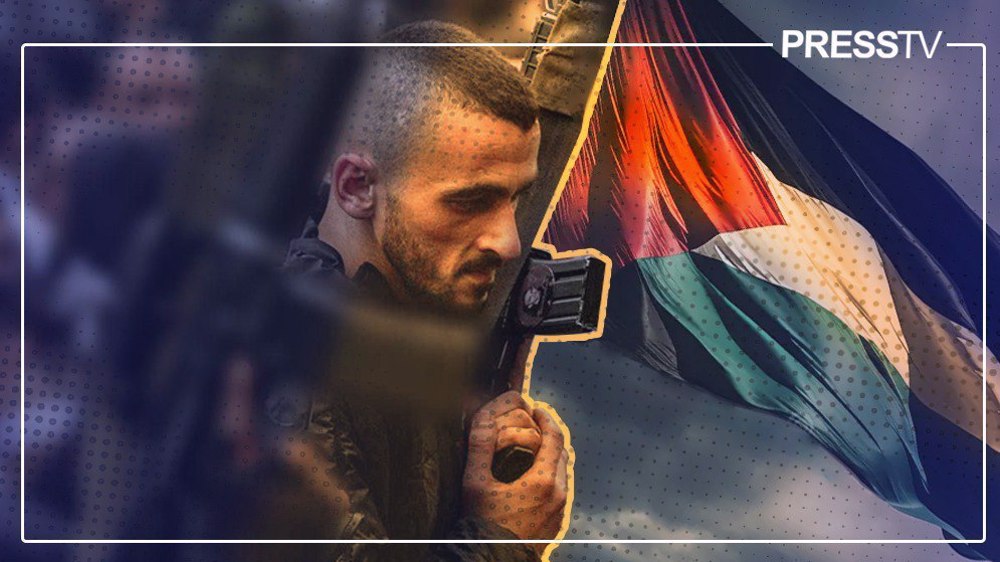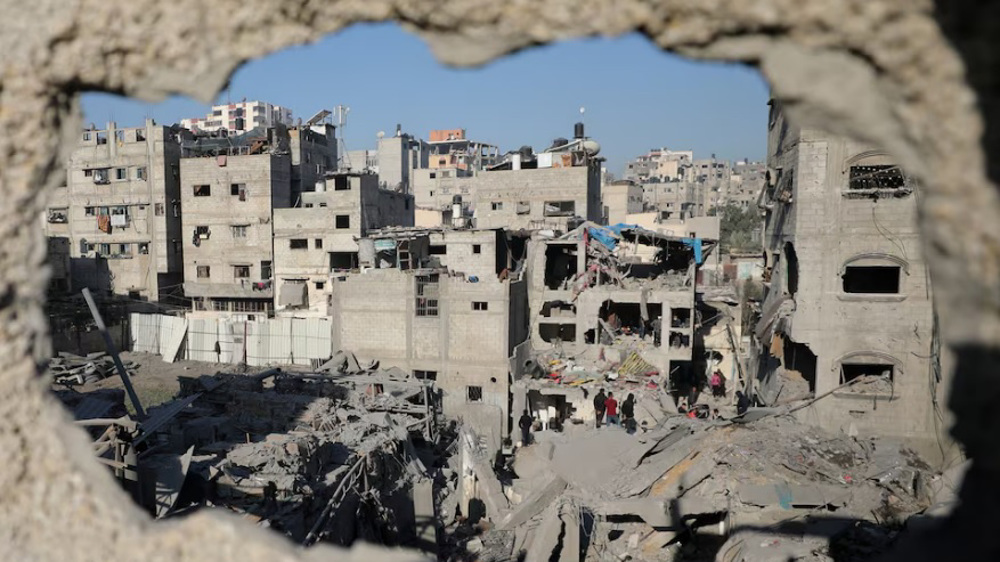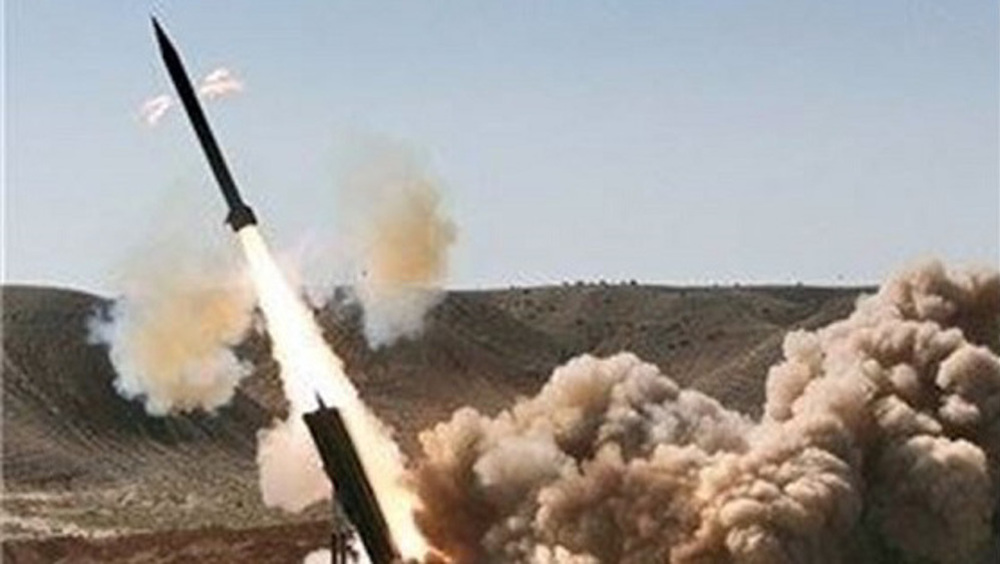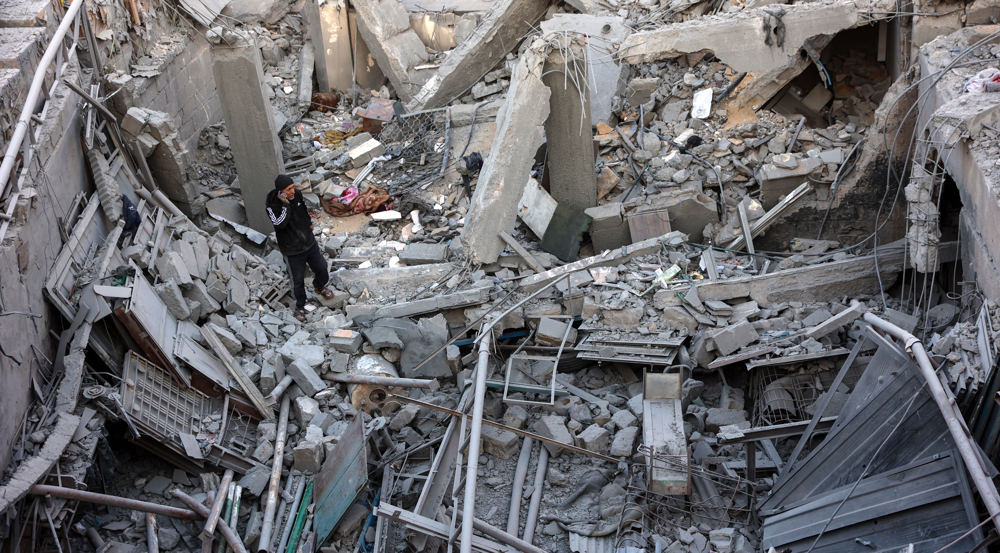Abu Shujaa, Tulkarem Brigade commander and nightmare for Zionists in West Bank
By Humaira Ahad
Abu Shujaa, the intrepid commander of the Tulkarem Brigade, was assassinated on Thursday during a deadly Israeli military raid on the Nur Shams refugee camp in the northwestern occupied West Bank.
He was assassinated along with four other resistance fighters after occupation forces launched a large-scale assault on the camp, deploying dozens of military vehicles and using a large cache of explosives.
The fallen commander was known for his extraordinary bravery and conviction and had survived multiple assassination attempts over the years. He was the nightmare for the Zionist regime in the occupied West Bank.
Most recently, he survived an Israeli military assault on Tulkarem in April, when many had presumed him dead. However, he surprised everyone when he appeared at the mass funeral of his fallen comrades.
The Palestinian Islamic Jihad resistance movement paid glowing tributes to Abu Shujaa, hailing him as a beacon of resistance against the Israeli occupation in the occupied West Bank.
“The Islamic resistance movement exalts our people and the sons of our Arab and Islamic nation on the martyrdom of our fighter brother Mohammed Jaber (Abu Shujaa), the commander of the Tulkarem Brigade affiliated with Saraya Al-Quds,” it said in a statement on Thursday.
Commending the young commander, the Gaza-based resistance movement described Abu Shujaa as a fighter “who bravely confronted the occupation with his brothers, seeking to lift the injustice from their people, knowing that facing the enemy, whatever the price, is easier than living under a criminal occupation.”
Hamas also issued a statement mourning the loss of the top military commander while warning Israel that its brutal military aggression in the occupied West Bank “will erupt the volcano of anger simmering” among the people.
“We mourn the leader Abu Shujaa and all other martyrs, and we affirm that the continuation of the occupation's aggression in the West Bank will not break our people or their resistance,” read the statement issued on Thursday.
Israel has launched its largest military assault on the occupied West Bank in over two decades, targeting Jenin, Tulkarem, Nablus, and Tubas and other areas.
A frail young man, Abu Shujaa was uncharacteristically brave on the battlefield, always leading from the front. He commanded tremendous respect from the fighters in the Tulkarem Brigade and other armed resistance factions there.
Abu Shujaa, born Mohammed Jaber in the Nur Shams Camp in the occupied West Bank in 1998, came from a family that hailed from Haifa and was displaced during the 1948 Nakba.
He grew up in the Nur Shams refugee camp, which was established in 1950 to accommodate Palestinians driven out of their homes in the Israeli-occupied territories of Jaffa, Haifa, and Kissaria during the large-scale ethnic cleansing of Palestinians in 1948.
Having witnessed and experienced the brutality of the Israeli occupation, Abu Shujaa became involved in resistance activities at a young age, rising through the ranks to become the commander of the Tulkarem Brigade, affiliated with the Al-Quds Brigades, the armed wing of the Islamic Jihad movement, and the Al-Aqsa Martyrs Brigade.
He was first arrested by Israeli forces at the age of 17. Afterward, he was frequently detained, spending nearly five years in various Israeli prisons.
Abu Shujaa was also detained twice by the Palestinian Authority, which has been accused by Gaza-based resistance groups of cracking down on resistance leaders in the occupied West Bank amid the Israeli genocidal war on Gaza.
In March 2022, he laid the foundation of the Tulkarem Brigade in the occupied West Bank along with fellow fighter Saif Abu Labdeh.
Following Abu Labdeh’s assassination in 2022, Abu Shujaa assumed overall command of the armed resistance group. Under his charismatic leadership, the battalion grew to include scores of fighters from different Palestinian resistance movements.
In a recent interview with Al Mayadeen, Abu Shujaa confirmed that the Israeli regime had repeatedly failed in its attempts to assassinate him so they went after his family.
In order to force him to surrender, Israeli forces repeatedly targeted Abu Shujaa’s family. His brother Mahmoud was killed during an Israeli raid on the Nur Shams Camp. His other two brothers, Oday and Ahmad, have been repeatedly arrested by the Israeli army. Israel also demolished their home, rendering the family homeless.
Abu Shujaa considered the Israeli army "weaker than a spider's web," using an expression immortalized by Lebanese Hezbollah leader Sayyed Hassan Nasrallah.
On April 19, 2024, the Israeli military prematurely announced that Abu Shujaa had been assassinated in a raid on a house in the Nur Shams camp.
While the mosques in Tulkarem mourned his death and his father confirmed reports of his son's martyrdom, Abu Shujaa made a public appearance at the funeral procession of Palestinian fighters killed by the Israeli regime two days later.
He delivered a thunderous speech about the continuation of resistance operations with full determination. Receiving a hero’s welcome, he was hoisted onto the shoulders of the cheering crowd.
“Our message to the occupation is that we are defiant, following the path of the martyrs," he was quoted as saying at the time.
"If the enemy assassinates me, we will continue. The struggle does not end with one person; there are generations that will rise to defend our rights.”
The top Tulkarem commander was greatly loved and admired by the Palestinians. In July 2024, the people of the occupied West Bank mobilized to rescue Abu Shujaa when he was placed under siege by the Palestinian Authority while being treated for injuries from an explosion at Thabet Hospital.
Abu Shujaa’s martyrdom comes as Israel carries out large-scale military raids in parts of the occupied West Bank. The regime has killed more than a dozen Palestinians in recent days in the worst assault since 2002.
Since October 7, more than 650 Palestinians, including 148 children, have been killed by Israel in the occupied West Bank.
More than 10,000 others languish in Israeli jails on dubious charges, denied justice.
In his last poetic and thoughtful message posted on social media, Abu Shujaa reaffirmed his commitment to the great cause of the Palestinian struggle for liberation.
“To me, I don't think my heart will ever fully heal, I will always feel a sense of shortcomings throughout my life, even though there is nothing that I could do that I haven’t already done," he wrote.
"I see my arrest, the loss of my home, my separation from my family, the loss of my brother Mahmoud, and several others close to me as passing matters compared to a child who has lost his mother, or a father who has lost his child, or a prisoner who will spend decades in his cell, deprived of his children."
He hastened to add that he "consoles" himself that if they come out of this war against the Israeli occupation alive, their duty will be to provide inspiration to others and "to remain loyal to those who sacrificed and offered so much."
According to eyewitness accounts, Abu Shujaa fought like a veteran warrior on Thursday and did not retreat from the scene. He too sacrificed himself for the great cause that has given too many lives over the years.
Spain jurists demand ties with Israel ties be cut
VIDEO | Press TV's news headlines
VIDEO | Iran honors top Science Olympiad medalists
VIDEO | Austrians arrested at Gaza protest in Vienna
10 killed in bus crash in western Iran
VIDEO | One-man-band journalism with Civili
5 Israeli forces killed as Palestinian fighters face up to regime’s war machine
VIDEO | An insider's view of the country: Persian Tahini, Royan in Mazandaran










 This makes it easy to access the Press TV website
This makes it easy to access the Press TV website